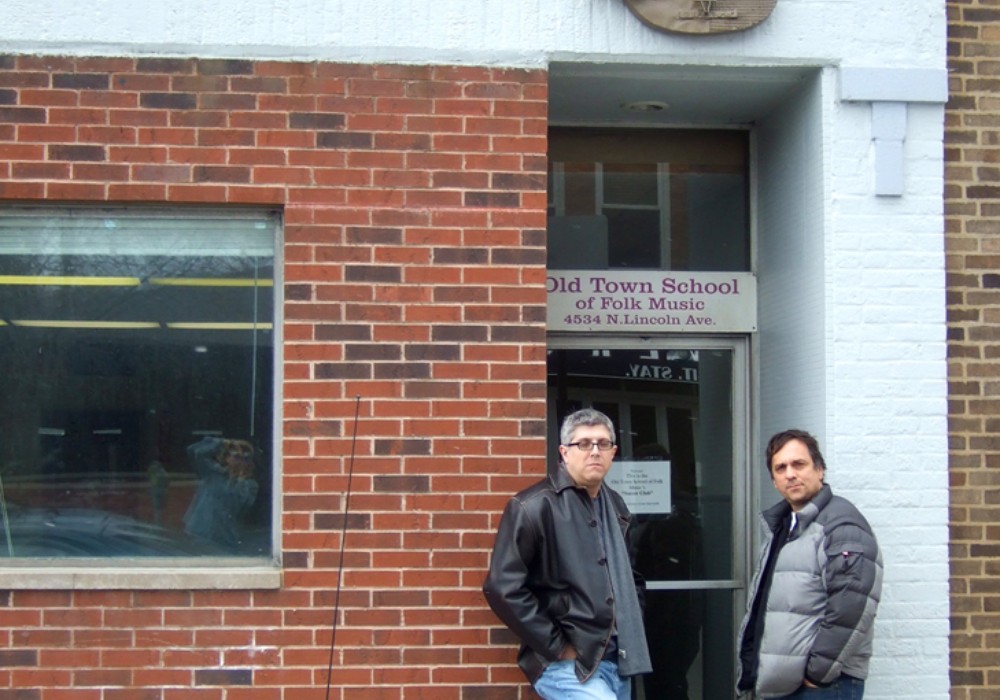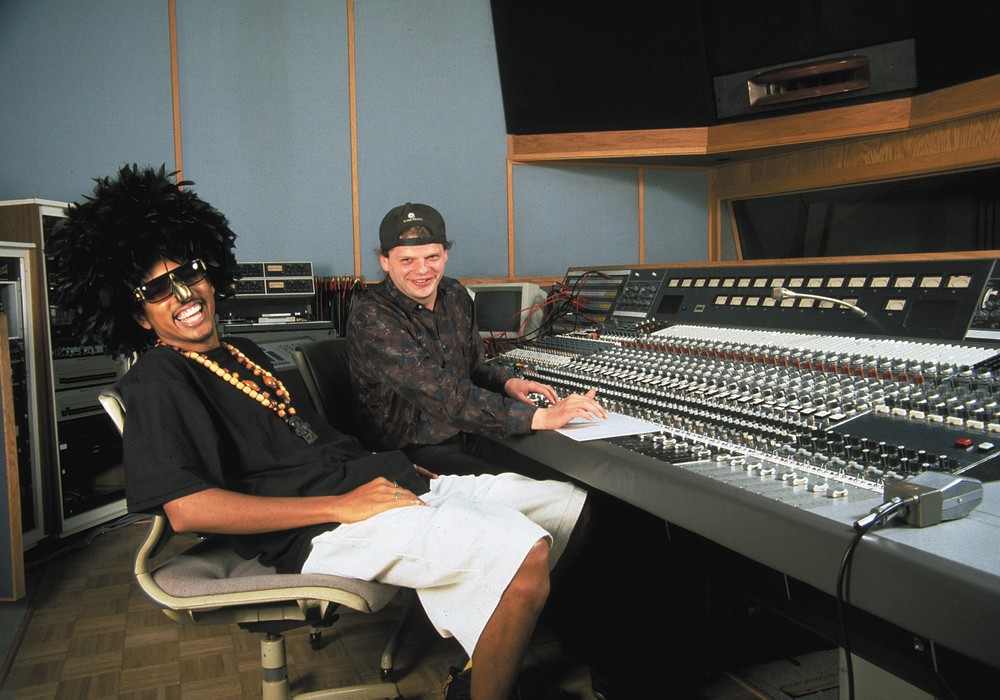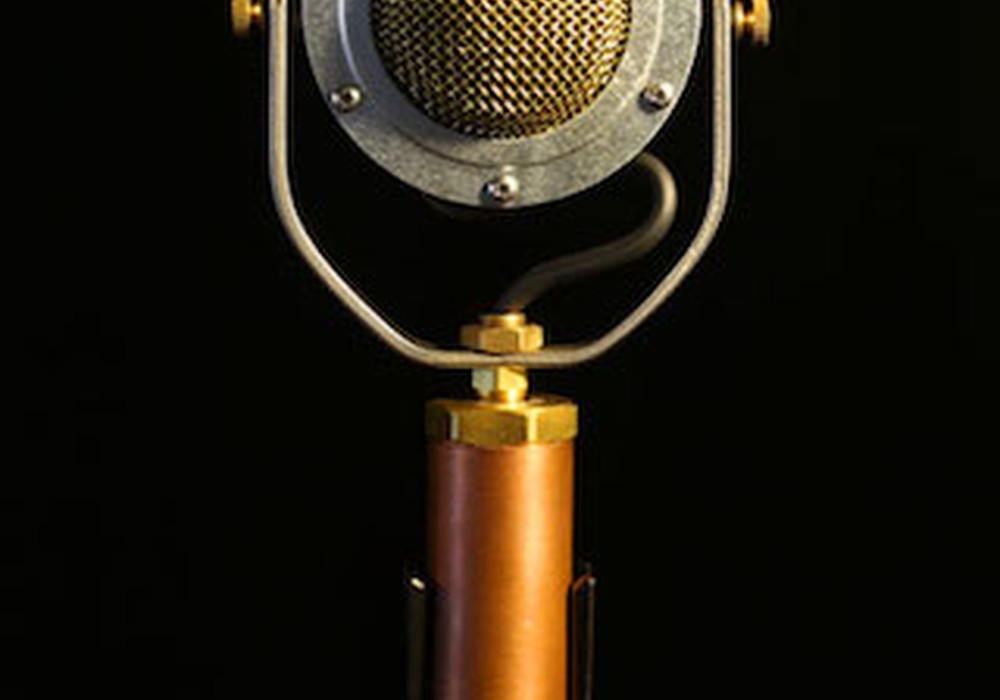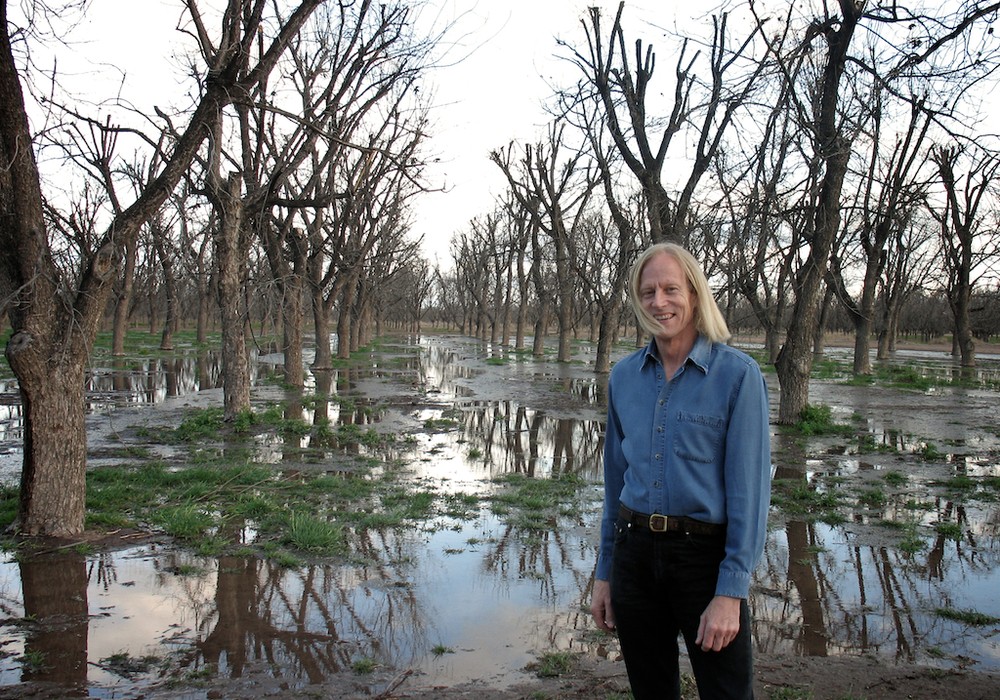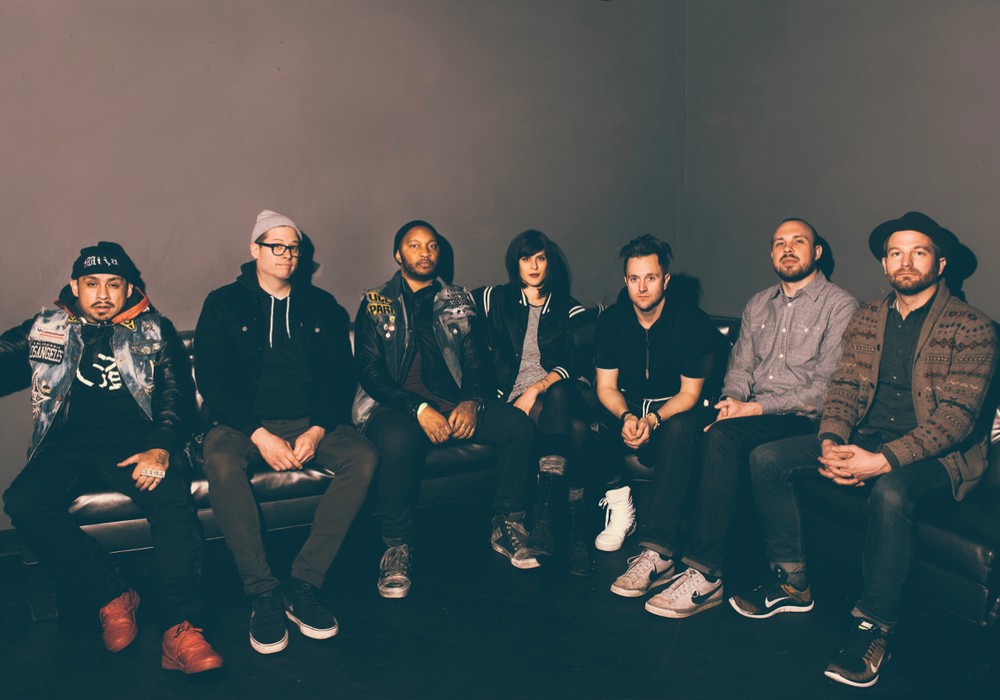A couple of years ago I got an email from Brendan, Grupo Fantasma's tour manager, noting that their self-recorded album, El Existential, had won the 2011 Grammy for Best Latin Rock, Urban or Alternative Album. After I heard the CD I wanted to know how it all went down, so I tracked him and Adrian down in their hometown of Austin and learned the story of a rented house and trying but fun recording sessions. I was also lucky to catch live sets by Grupo and Brownout, a related band of Adrian's, where both groups delivered the goods to excited audiences. Grupo Fantasma has done several records with Stuart Sullivan, also in this issue, and they have a new album coming out in 2013, produced by Steve Berlin [Tape Op #55] of Los Lobos.
Where were you recording your previous records?
A: The record [Sonidos Gold] we did before El Existential was at Wire Recording with Stuart Sullivan. He's a good friend and helps us out. Our first record [Grupo Fantasma] was practically a demo. We were playing live and our manager, and soundman at the time, David [Lobel], was like, "Everyone wants to hear a CD." We went into the studio, knocked that shit out, and hardly even thought about it. I was 22; I didn't pay attention to details.
Were you tracking a lot of it live?
A: Yeah, and we only had two or three days [in the studio]. The second album [Movimiento Popular] we did at Stuart's, but we went overboard with the production. Next we decided to make a live album [Comes Alive]. On those first two records people were like, "That band is so good live, but the records don't really capture that." With [Sonidos Gold] we finally knew sonically how we wanted to explain it. We had a relationship with Stuart, where if I wanted a whale with a microphone up it's butt, Stuart can make that happen. I was into recording enough at that point where I knew what I wanted. The band had a vision and it all just came together. A lot of that was getting into the room sounds. I really like those old school records where everyone is in one room. Stuart asked, "How do you feel about trying to avoid any fake reverb? Just use reverb from your amps and room mics?" So he was compressing the hell out of the room mics — everything sounded huge and massive because his studio is amazing. That was the first time I was completely 100 percent proud of an album. Mainly it was his awesome room, his mics, and his knowledge of how to make it sound good. Then for El Existential we just didn't have the money to go to Stuart, and he was really busy at the time. I also wanted it to sound completely different. I love Sonidos Gold; I just didn't want to repeat it. We wanted to write in the studio too — we'd never had that opportunity before. Our manager asked, "What if we rented a house and you did it yourself?" It's not like we're the first band to ever do that, but we'd never done it. We asked Brendan, who has a lot of experience in recording, to put it all together.
You were working with the band already?
B: Yeah, exactly. I'd been tour managing Grupo for about four years. I was doing production management, tour management, and monitors. We had a front of house engineer, but I'd do monitors and record the shows too. Adrian said, "We've got a house and we're going to start recording. It'll probably take four months." I already had my brain wrapped around what the band needed, and what sounded best.
A: Our manager was looking at houses while we were on tour. We had to nail it down. One day he called and said, "This one came up. It's awesome." I said, "I need to see it. We need to see the layout and see how big it is. Do you even know if we can make loud noise?" He's not a studio guy — I could tell he just wanted to get it over with. So we piled up what gear we had between us; it didn't include a lot of high-end stuff, so we rented some, including a [Neumann] U 87.
B: Adrian said, "What are we going to do about gear? We're basically going to be filling up a whole studio." We were following up a Grammy-nominated album with this. It definitely gave me a sense of challenge. Then I showed up the first day and saw a Rupert Neve Portico, an API preamp, and the U 87.
A: I felt that pressure, for sure. I thought, "I'm going to produce and Brendan's going to help me out." Every now and again I would get anxiety attacks at night. We could hardly get the studio to work at first, but we were so busy...
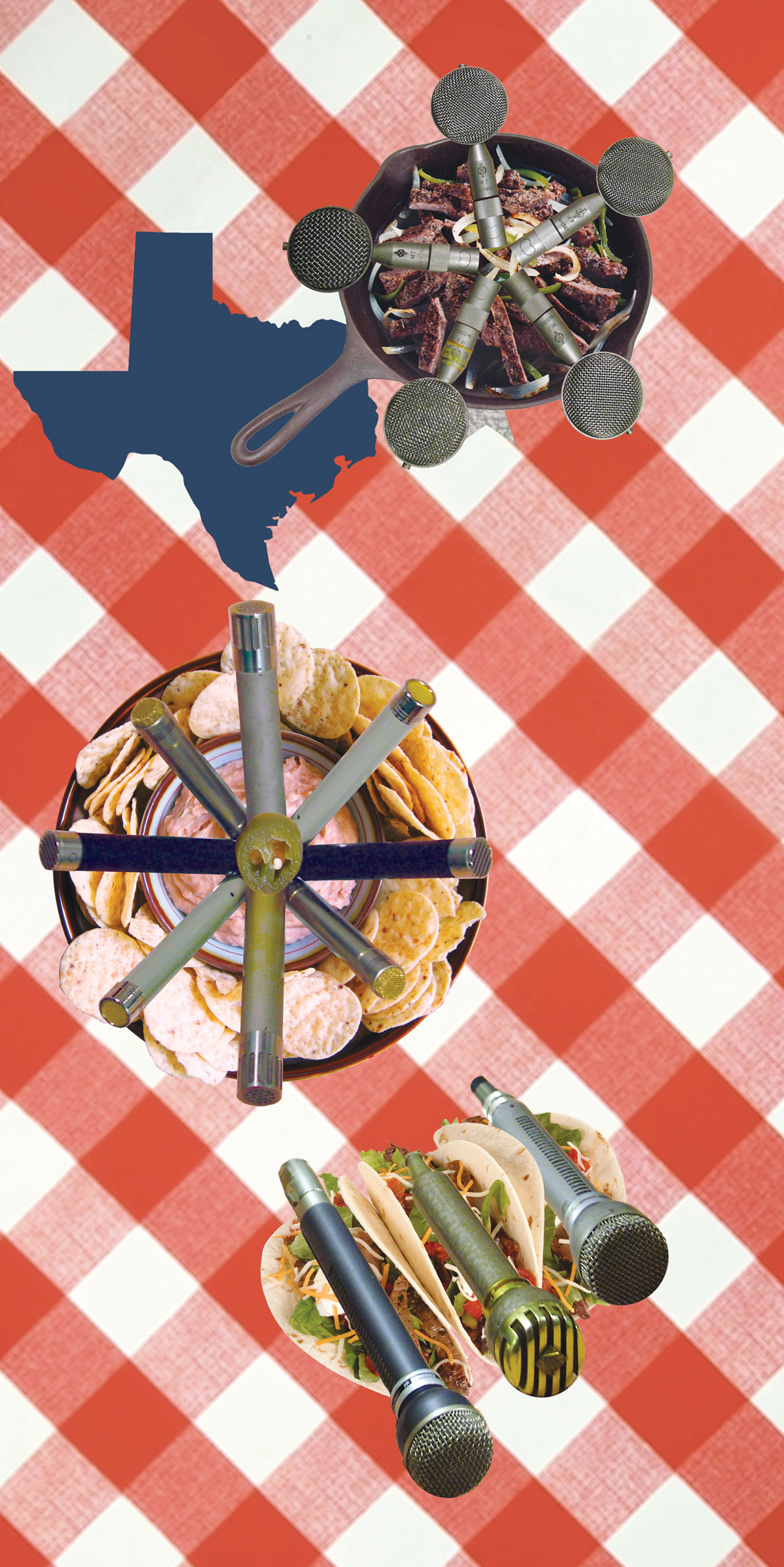

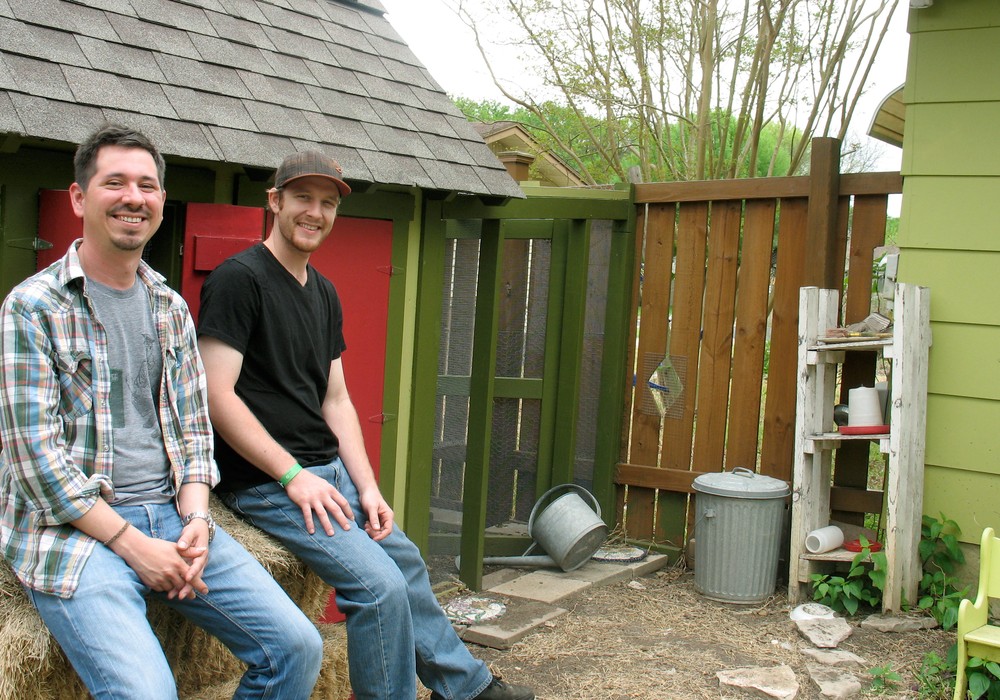
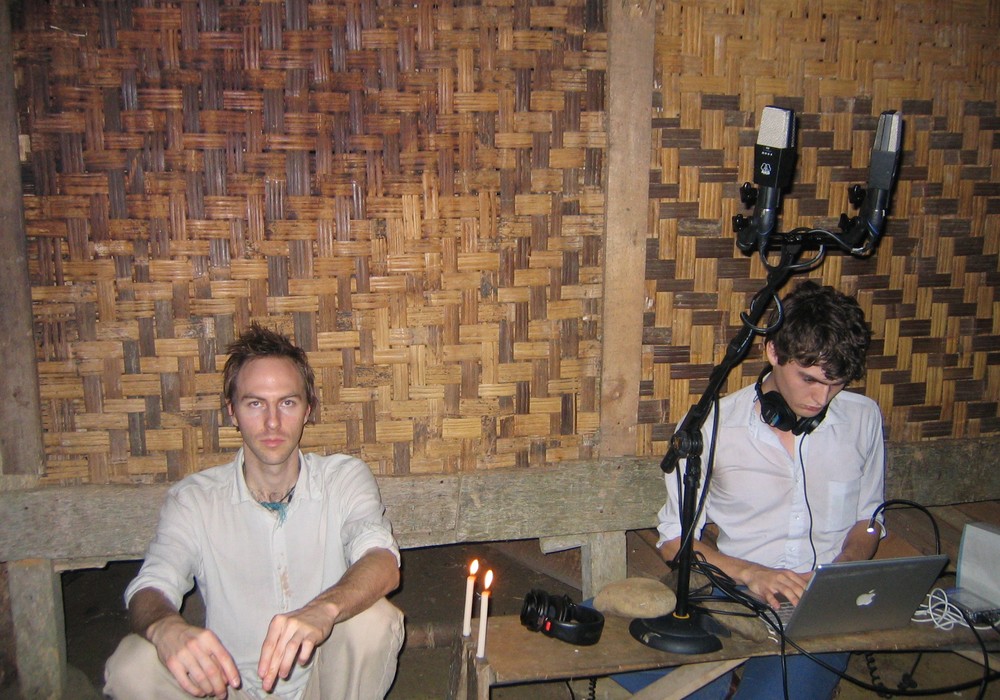
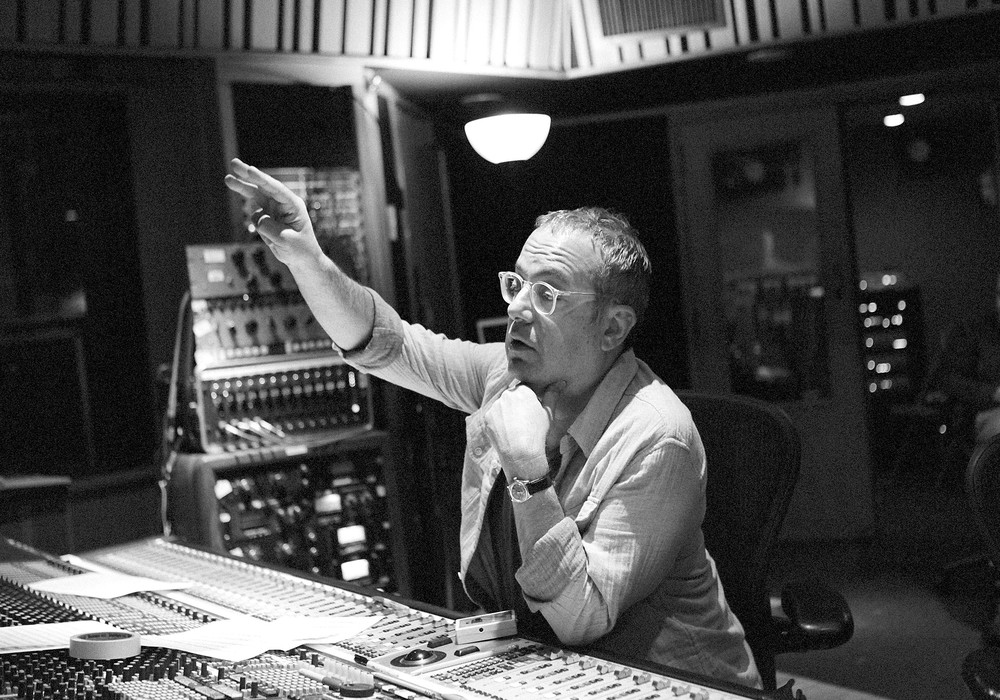
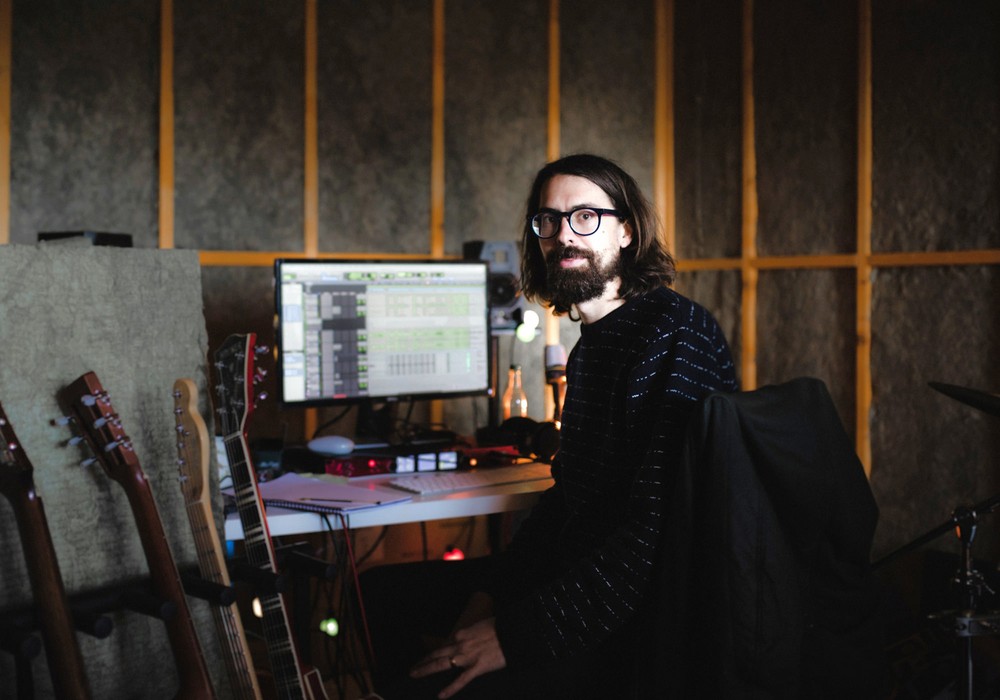
_display_horizontal.jpg)
